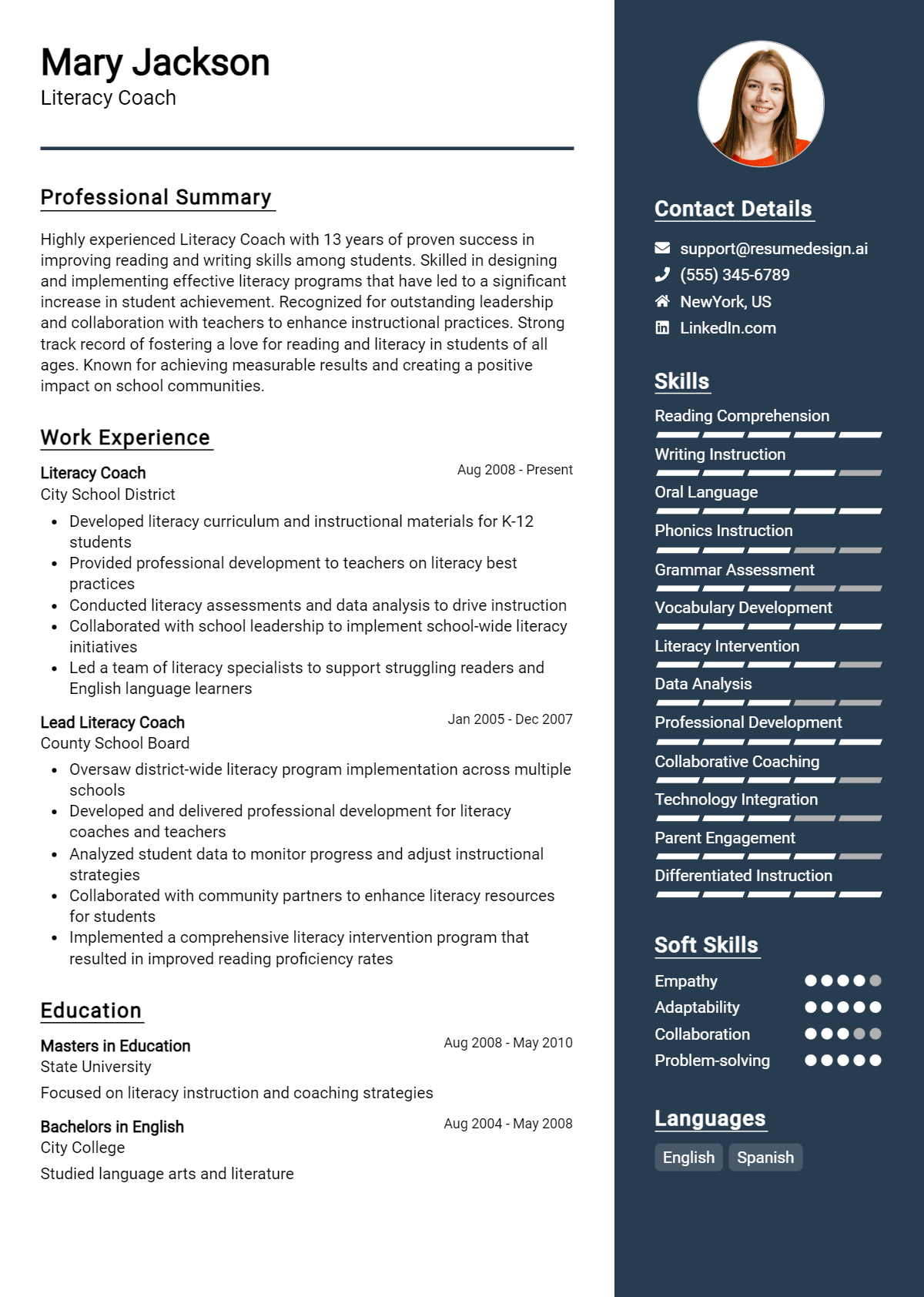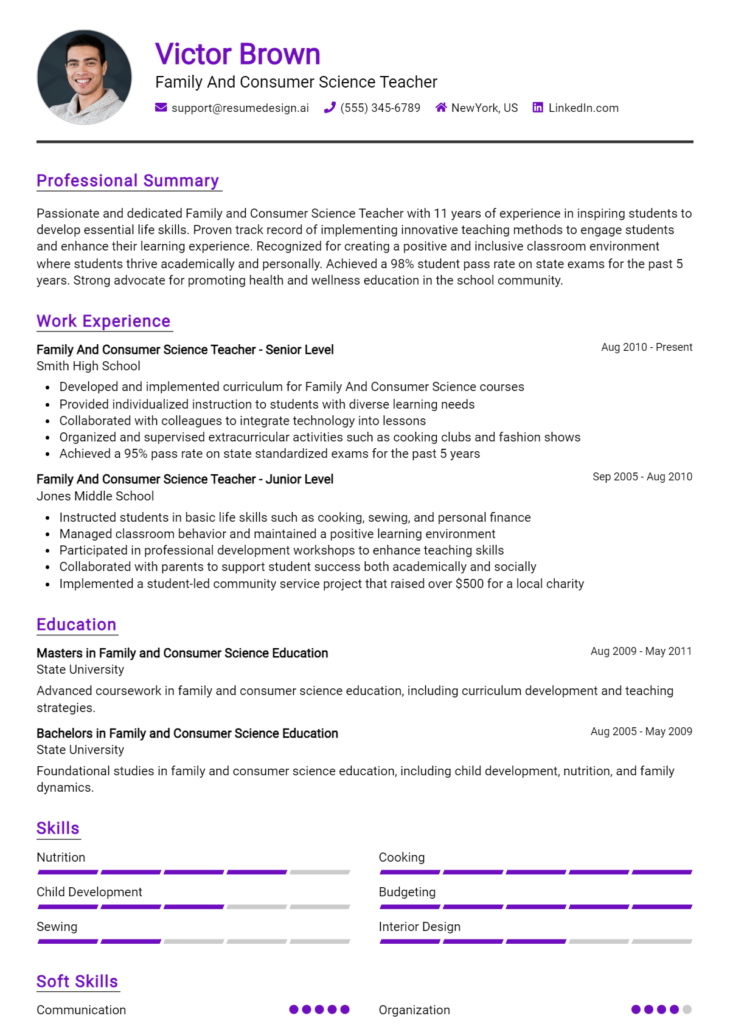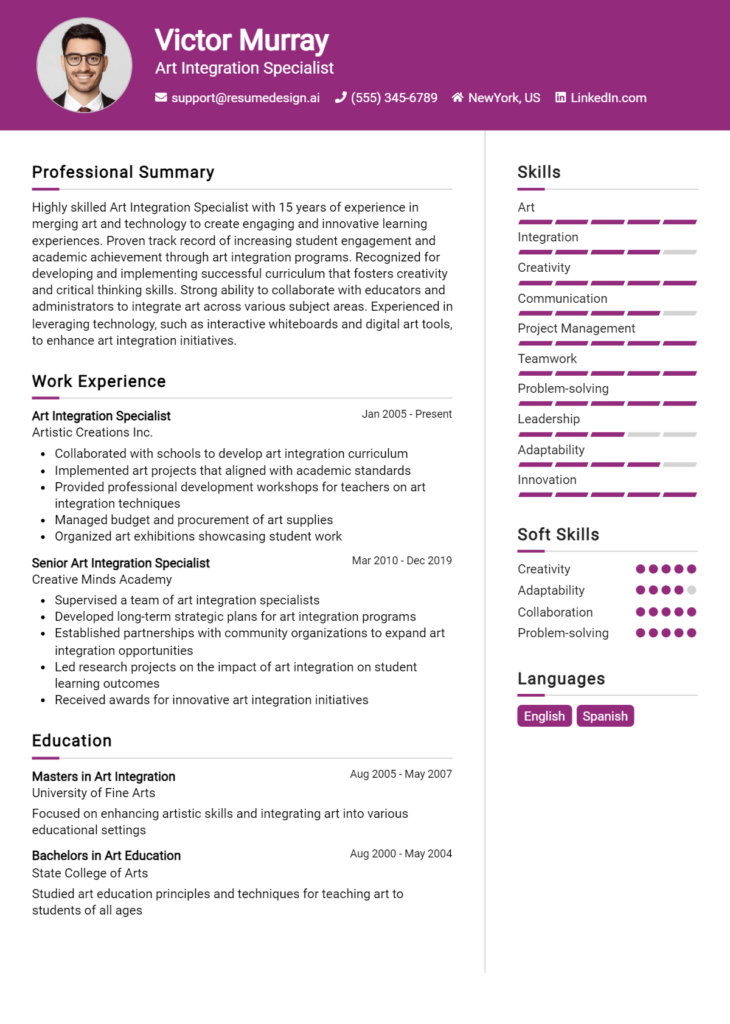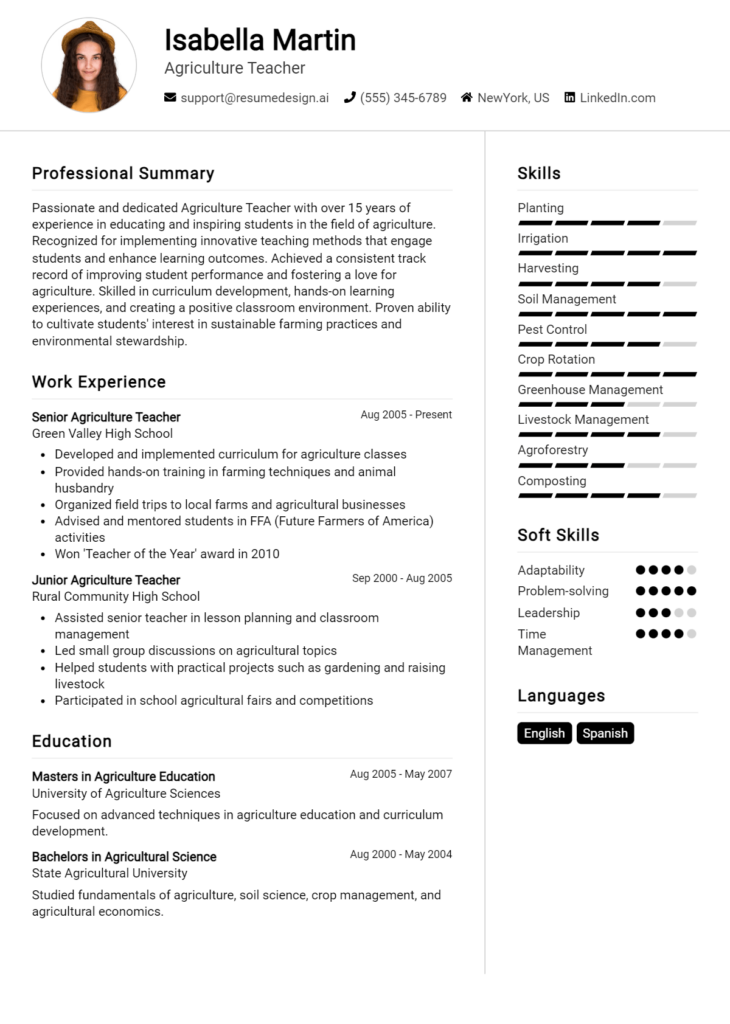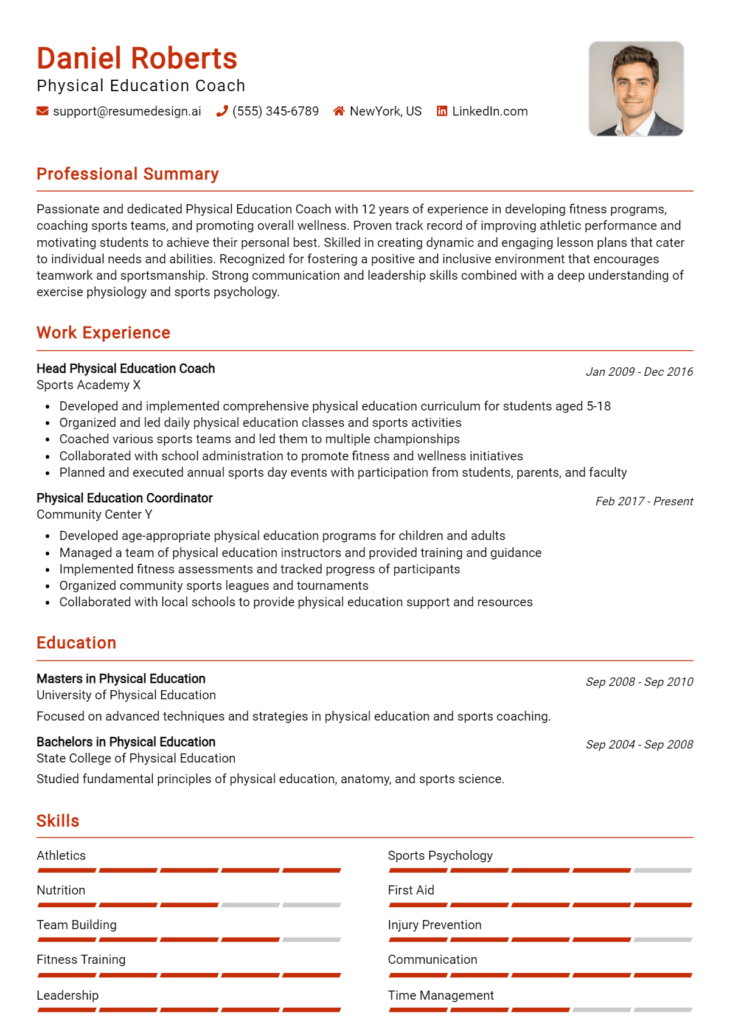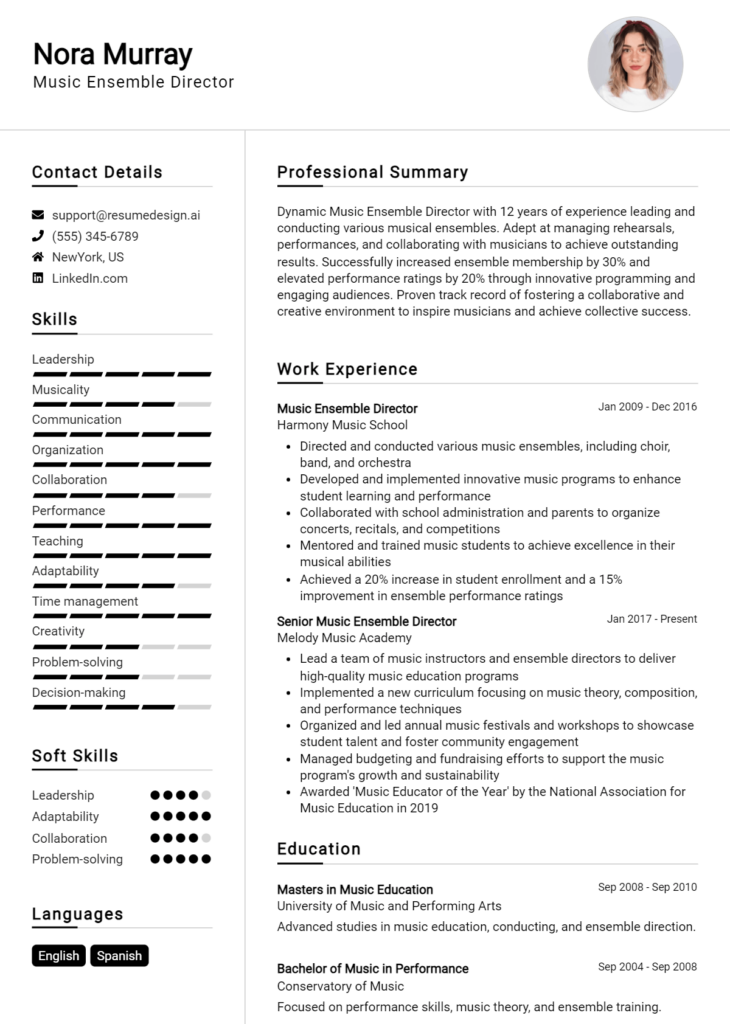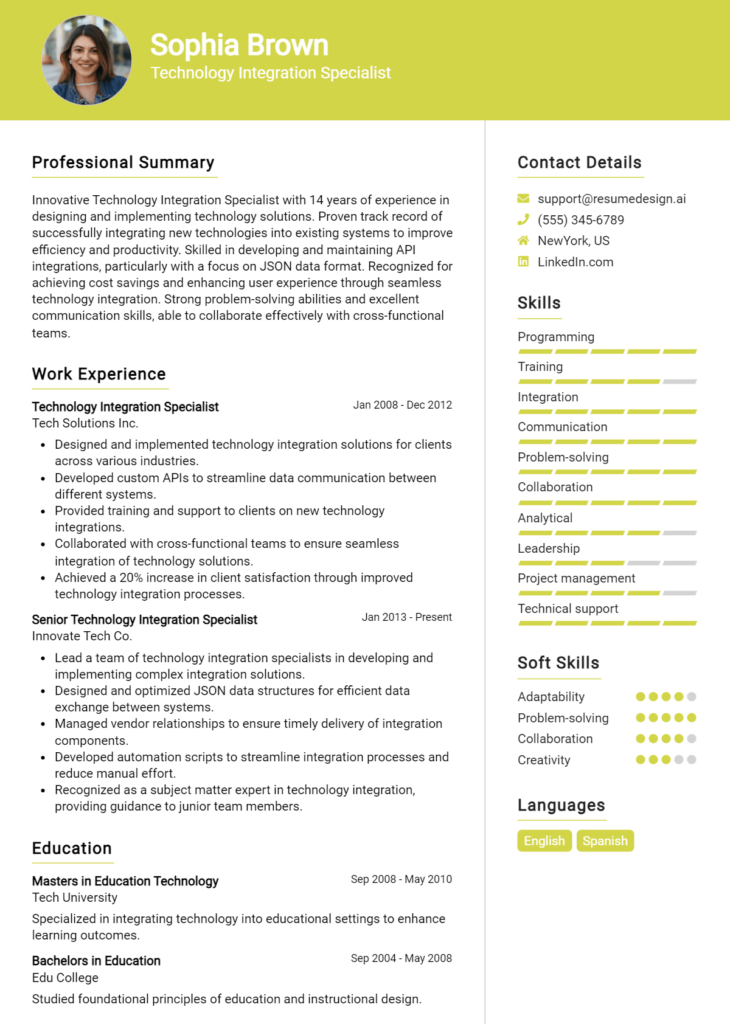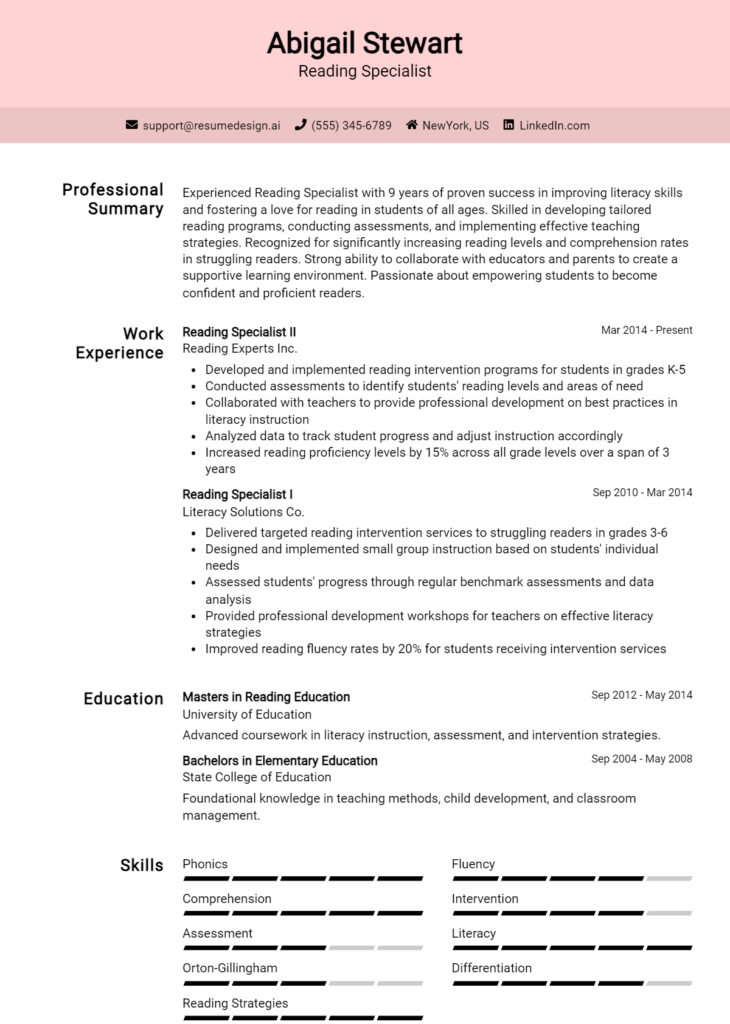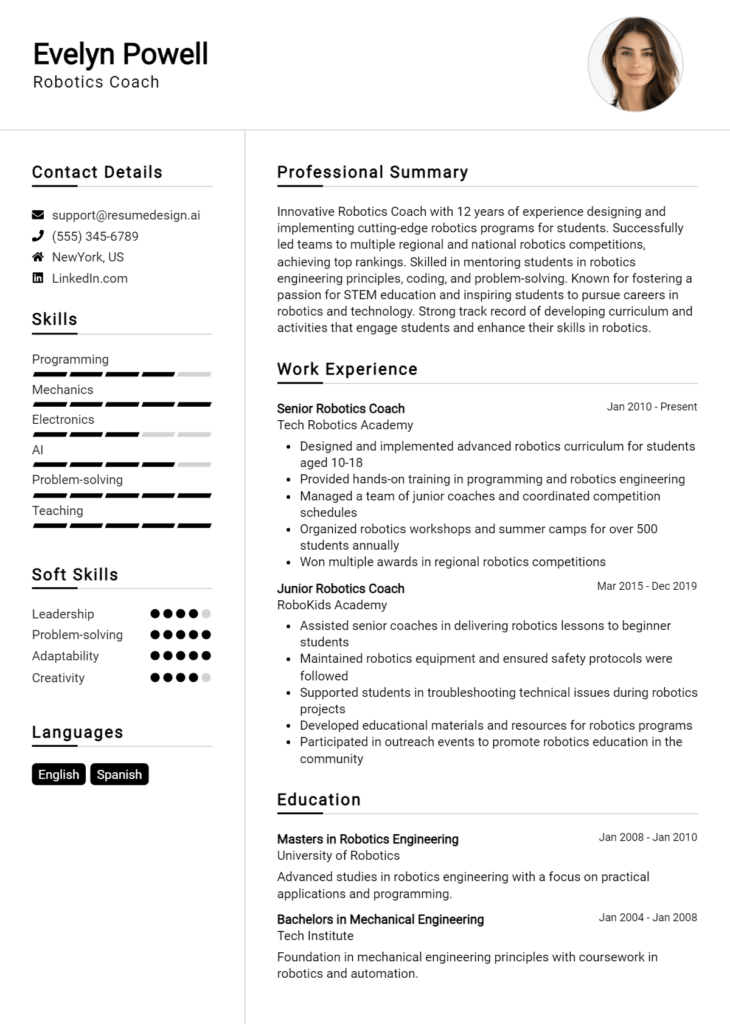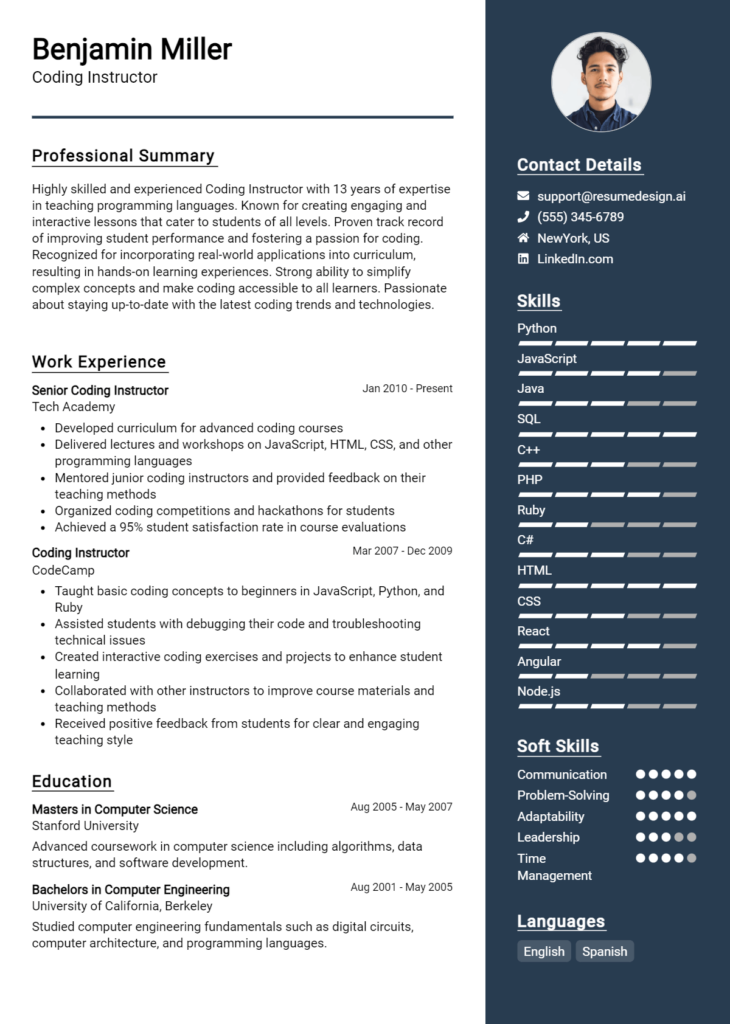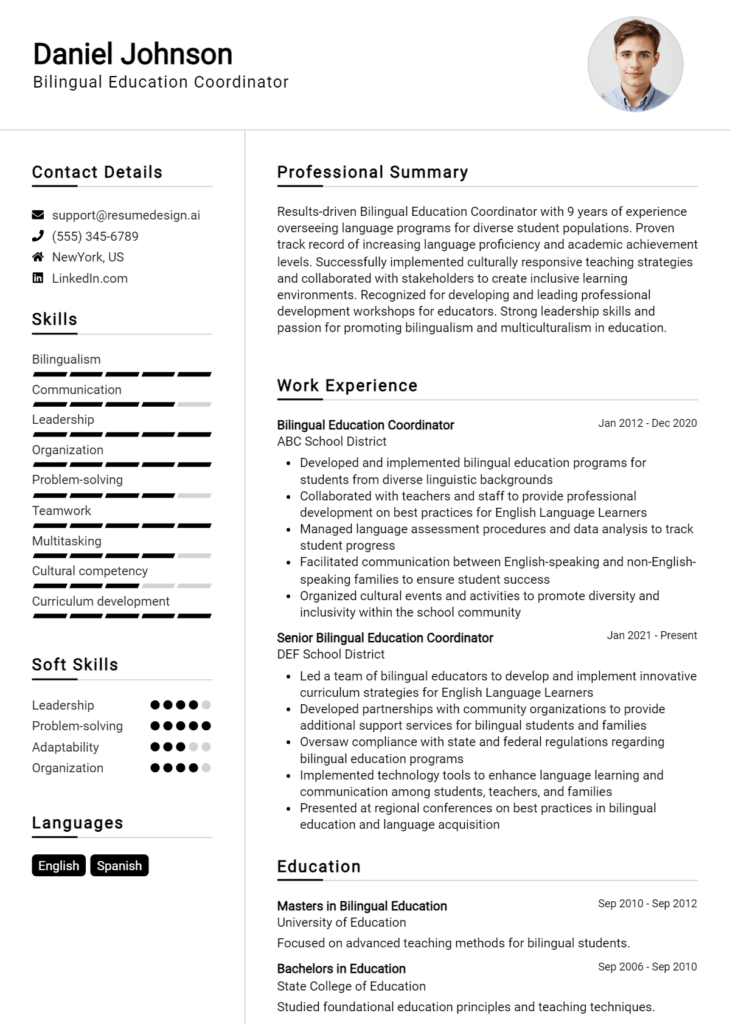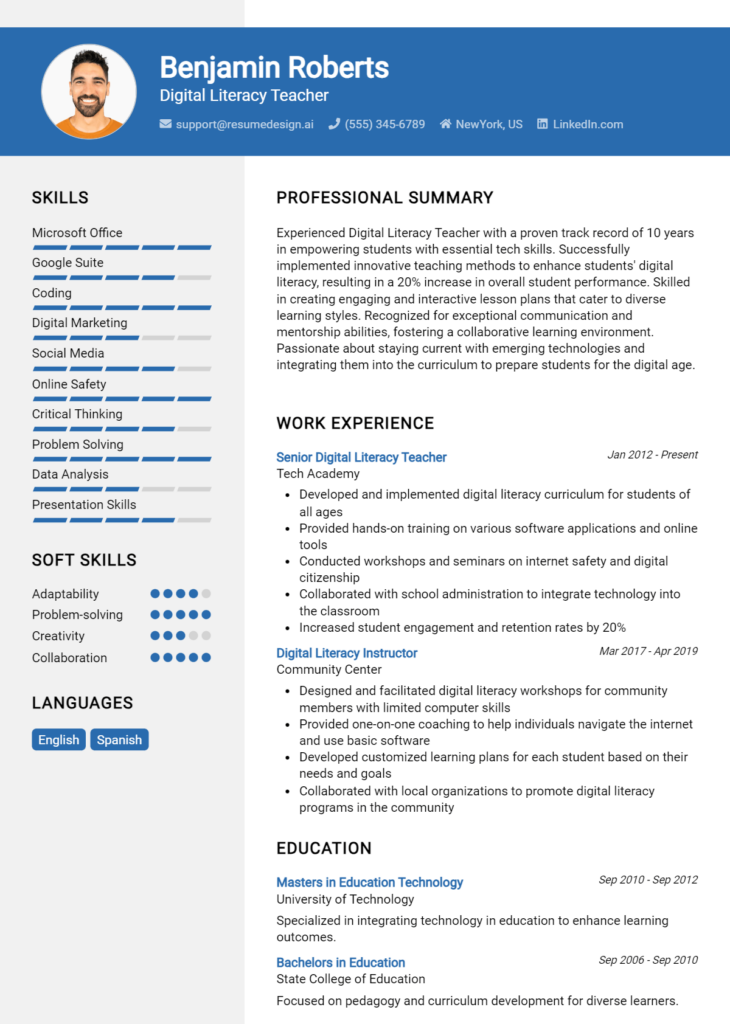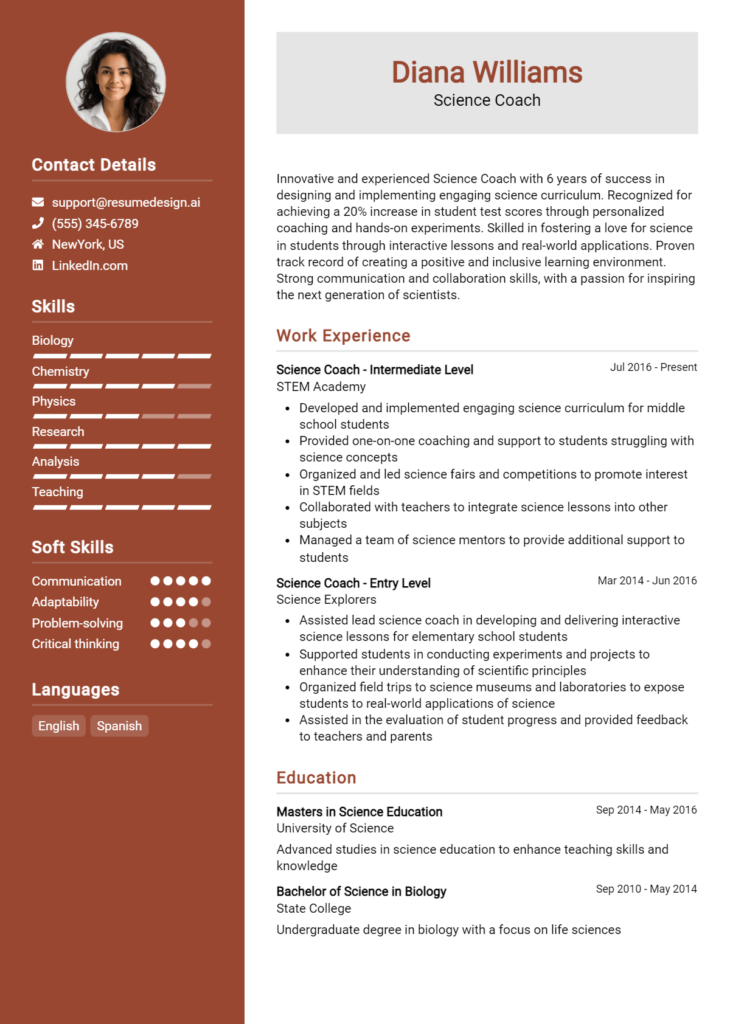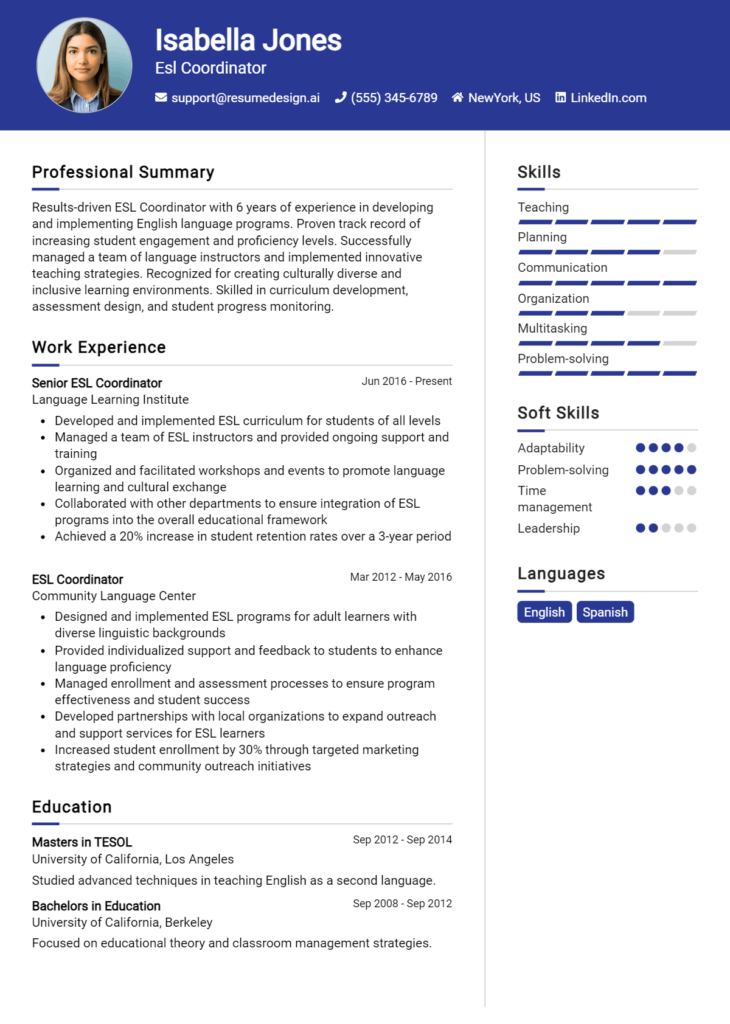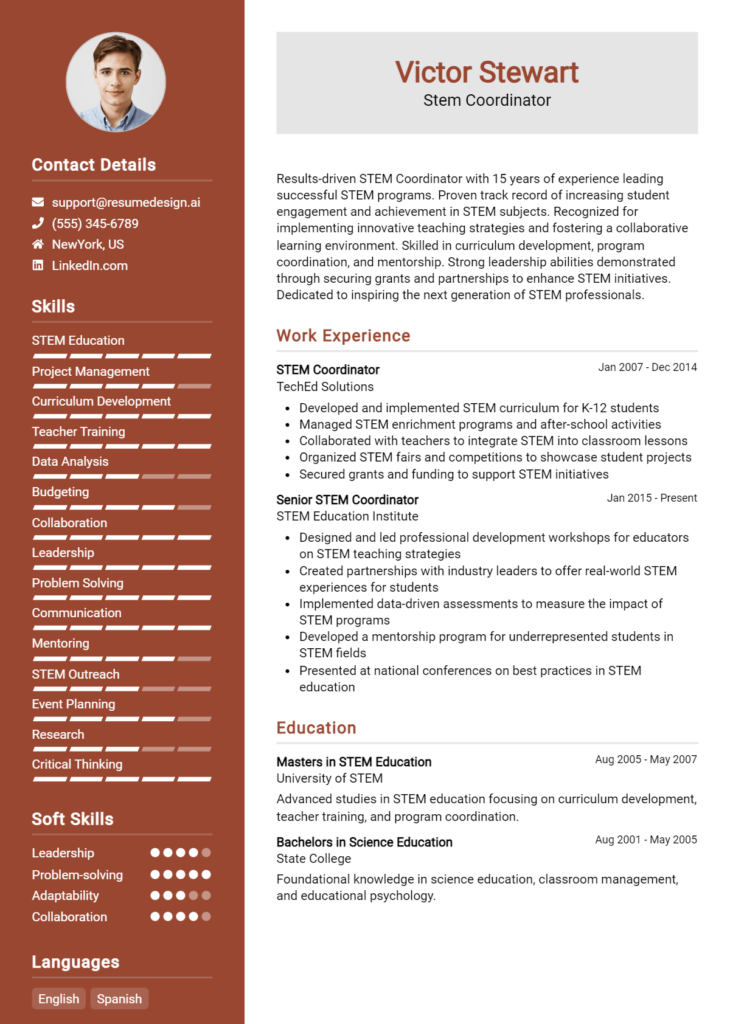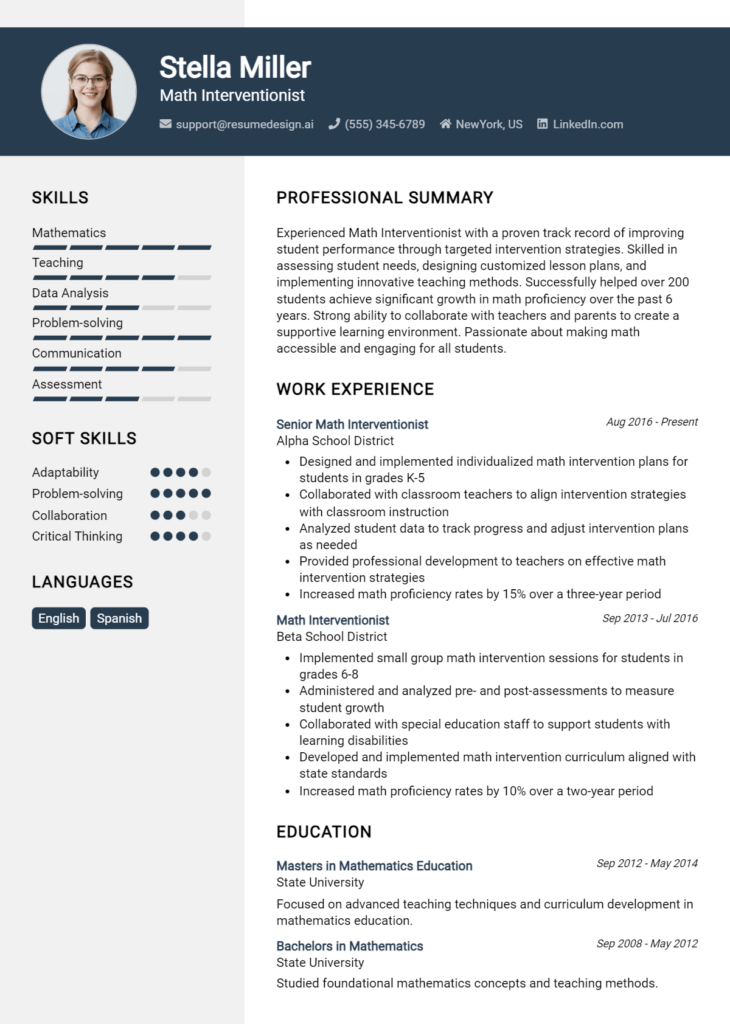Literacy Coach Core Responsibilities
A Literacy Coach plays a vital role in enhancing literacy instruction by collaborating with teachers, administrators, and other educational professionals. Key responsibilities include analyzing student data, developing instructional strategies, and providing targeted professional development. This role requires strong technical skills, operational expertise, and exceptional problem-solving abilities to address diverse learning needs. By fostering interdepartmental collaboration, Literacy Coaches contribute significantly to the organization's educational goals. A well-structured resume can effectively highlight these qualifications, showcasing a candidate's impact on literacy outcomes.
Common Responsibilities Listed on Literacy Coach Resume
- Conduct assessments to determine student literacy levels and needs.
- Design and implement targeted literacy intervention programs.
- Provide professional development workshops for educators.
- Collaborate with teachers to develop effective literacy curricula.
- Analyze and interpret student performance data.
- Support the integration of technology in literacy instruction.
- Facilitate literacy-focused instructional coaching sessions.
- Develop resources and materials to enhance literacy teaching.
- Monitor and evaluate the effectiveness of literacy initiatives.
- Engage with parents and the community to promote literacy.
- Stay updated on current literacy research and best practices.
High-Level Resume Tips for Literacy Coach Professionals
In today's competitive job market, a well-crafted resume is essential for Literacy Coach professionals looking to make a lasting impression. Your resume often serves as the first point of contact with potential employers, and it is critical that it effectively highlights your skills, achievements, and passion for literacy education. A compelling resume not only showcases your qualifications but also reflects your dedication to fostering literacy in diverse learning environments. This guide aims to provide practical and actionable resume tips specifically tailored for Literacy Coach professionals, empowering you to create a document that truly stands out.
Top Resume Tips for Literacy Coach Professionals
- Tailor your resume to the job description by incorporating keywords and phrases used in the posting.
- Highlight relevant experience, such as previous roles in literacy instruction, coaching, or curriculum development.
- Quantify your achievements; use specific metrics to demonstrate the impact of your work (e.g., improved student literacy rates).
- Showcase industry-specific skills, such as knowledge of literacy assessment tools, instructional strategies, and differentiated learning.
- Include professional development experiences, such as workshops, certifications, and conferences related to literacy education.
- Utilize a clear and organized format that makes your resume easy to read and visually appealing.
- Incorporate action verbs to describe your responsibilities and accomplishments, creating a dynamic narrative of your professional journey.
- Consider adding a summary statement at the top of your resume that encapsulates your expertise and career objectives.
- Make sure to proofread for any errors or inconsistencies, as attention to detail is crucial in the education field.
By implementing these tips, you can significantly enhance your resume and increase your chances of landing a job in the Literacy Coach field. A polished and targeted resume not only highlights your qualifications but also demonstrates your commitment to improving literacy outcomes, making you a compelling candidate for employers seeking dedicated professionals.
Why Resume Headlines & Titles are Important for Literacy Coach
As a Literacy Coach, the role of resume headlines and titles cannot be overstated. These elements serve as the first impression a candidate makes on hiring managers, offering a succinct overview of their professional identity and highlighting key qualifications. A strong headline or title can instantly grab attention and provide a snapshot of the candidate's expertise, making it easier for employers to see the relevance and value they bring to the position. It is essential that this headline is concise, relevant, and directly related to the job being applied for, as it sets the tone for the rest of the resume.
Best Practices for Crafting Resume Headlines for Literacy Coach
- Keep it concise: Aim for a headline that is no more than 10 words.
- Be role-specific: Use terminology and language relevant to literacy coaching.
- Highlight key strengths: Focus on your most significant skills and achievements.
- Use action words: Begin with dynamic verbs to convey energy and proactivity.
- Tailor it to the job: Align your headline with the specific requirements of the job description.
- Showcase relevant experience: Mention years of experience or specific areas of expertise.
- Include certifications: If applicable, integrate relevant certifications or credentials.
- Make it impactful: Use powerful language to evoke interest and prompt further reading.
Example Resume Headlines for Literacy Coach
Strong Resume Headlines
“Experienced Literacy Coach with 10 Years in Elementary Education”
“Dedicated Literacy Specialist Committed to Student Achievement”
“Certified Literacy Coach Enhancing Reading Skills Across Diverse Learners”
“Dynamic Literacy Coach Fostering a Love for Reading in Young Learners”
Weak Resume Headlines
“Looking for a Job”
“Education Professional”
“Experienced Coach”
Strong headlines are effective because they immediately convey relevant information and demonstrate the candidate's qualifications, making them stand out in a competitive job market. They are specific, engaging, and tailored to the role of a Literacy Coach, which helps hiring managers quickly assess the candidate’s fit for the position. In contrast, weak headlines fail to impress because they lack specificity and do not highlight the candidate's strengths or relevant experience, leaving hiring managers with little incentive to explore further.
Writing an Exceptional Literacy Coach Resume Summary
A resume summary is a critical component for a Literacy Coach, as it serves as the first impression a candidate makes on hiring managers. A well-crafted summary quickly captures attention by highlighting key skills, relevant experience, and noteworthy accomplishments that align with the demands of the role. By being concise and impactful, the summary can effectively set the tone for the rest of the resume, showcasing the candidate’s qualifications in a tailored manner that resonates with the specific job description.
Best Practices for Writing a Literacy Coach Resume Summary
- Quantify Achievements: Use numbers and statistics to demonstrate your impact, such as improvements in student literacy rates.
- Focus on Skills: Highlight key competencies relevant to literacy coaching, such as curriculum development, assessment strategies, and instructional techniques.
- Tailor to the Job Description: Customize your summary to reflect the specific requirements and responsibilities mentioned in the job posting.
- Keep it Concise: Aim for 3-5 sentences that capture your most important qualifications without overwhelming the reader.
- Use Action Words: Start sentences with dynamic verbs to convey passion and proactivity, such as "developed," "implemented," or "enhanced."
- Highlight Professional Development: Mention relevant certifications or training that strengthen your qualifications as a literacy coach.
- Showcase Collaboration: Emphasize experience working with teachers, parents, and students to foster a supportive learning environment.
- Include Relevant Technology Skills: Mention any tools or platforms you are proficient in that can aid in literacy instruction and assessment.
Example Literacy Coach Resume Summaries
Strong Resume Summaries
Dedicated Literacy Coach with over 10 years of experience in developing targeted literacy programs that improved student reading levels by 30% in one academic year. Proficient in implementing data-driven instructional strategies and collaborating with educators to enhance classroom practices.
Results-oriented Literacy Coach with a proven track record of increasing student engagement and literacy scores. Successfully designed and executed professional development workshops, resulting in a 25% improvement in teacher instructional effectiveness.
Passionate Literacy Coach skilled in curriculum design and assessment analysis, having led initiatives that boosted reading proficiency rates by 40% across diverse classrooms. Experienced in utilizing technology to support literacy instruction and enhance learning outcomes.
Weak Resume Summaries
Experienced teacher looking for a position as a Literacy Coach. I have worked with students and understand their needs.
Literacy Coach with some experience in education. I am interested in helping students improve their reading and writing skills.
The examples above illustrate the effectiveness of strong resume summaries versus weak ones. Strong summaries are specific, quantifiable, and directly relate to the role of a Literacy Coach, showcasing clear accomplishments and skills. In contrast, weak summaries lack detail and relevance, making them less impactful and failing to demonstrate the candidate's capability or unique contributions to the position.
Work Experience Section for Literacy Coach Resume
The work experience section of a Literacy Coach resume is crucial as it serves as a platform to demonstrate the candidate's technical skills, ability to manage teams, and deliver high-quality educational products. This section highlights relevant positions held, showcasing achievements that reflect the candidate's impact in previous roles. By quantifying accomplishments and aligning experiences with industry standards, candidates can effectively illustrate their qualifications and readiness for the challenges of coaching literacy programs.
Best Practices for Literacy Coach Work Experience
- Highlight specific technical skills related to literacy development and instructional strategies.
- Quantify achievements with metrics, such as percentage improvements in student reading scores.
- Emphasize collaborative projects that demonstrate teamwork and partnership with educators.
- Use action verbs to convey leadership and initiative in previous roles.
- Align experiences with the needs of the position you are applying for, using relevant keywords.
- Showcase professional development activities that enhance coaching competencies.
- Include diverse experiences that reflect adaptability in various educational settings.
- Maintain clarity and focus, avoiding jargon that may not resonate with all audiences.
Example Work Experiences for Literacy Coach
Strong Experiences
- Led a team of 10 educators to implement a new reading intervention program, resulting in a 30% increase in student literacy rates over two academic years.
- Developed and delivered professional development workshops for over 100 teachers, enhancing instructional strategies and improving student engagement by 25%.
- Collaborated with school administration to design a comprehensive literacy assessment framework, improving data-informed decision-making across the district.
- Coached teachers in differentiated instruction techniques, leading to a 40% increase in classroom reading proficiency levels as measured by state assessments.
Weak Experiences
- Assisted in literacy programs at various schools.
- Helped teachers with reading strategies occasionally.
- Participated in some training sessions related to literacy.
- Worked on literacy initiatives with limited impact.
The examples listed as strong experiences are deemed effective because they provide specific, quantifiable outcomes and demonstrate leadership and collaboration in meaningful ways. In contrast, the weak experiences lack detail and impact, failing to convey the candidate's contributions or achievements in a significant manner. Strong statements reflect a clear understanding of the role and its requirements, while weak statements do not provide enough information to assess the candidate's effectiveness or relevance to the position.
Education and Certifications Section for Literacy Coach Resume
The education and certifications section of a Literacy Coach resume is crucial as it showcases the candidate's academic qualifications, industry-specific certifications, and commitment to ongoing professional development. This section not only highlights relevant degrees and specialized training but also demonstrates the candidate's dedication to effective literacy instruction and their ability to stay current with educational best practices. By providing information on relevant coursework and recognized credentials, candidates can significantly enhance their credibility and align themselves with the expectations of the job role, making a compelling case for their suitability as a Literacy Coach.
Best Practices for Literacy Coach Education and Certifications
- Prioritize relevant degrees in education, literacy, or a related field.
- Include certifications from recognized organizations, such as the International Literacy Association.
- Highlight any specialized training related to literacy interventions or instructional strategies.
- Provide details on relevant coursework that demonstrates expertise in literacy development.
- Keep descriptions concise but informative, focusing on how each qualification supports your coaching abilities.
- Update your education and certifications regularly to reflect ongoing learning and professional growth.
- Showcase any leadership roles or additional responsibilities taken on during training programs.
- Use clear formatting to make this section easy to read and visually appealing.
Example Education and Certifications for Literacy Coach
Strong Examples
- M.S. in Literacy Education, University of Education, 2020
- Certified Literacy Coach, International Literacy Association, 2021
- Advanced Training in Reading Intervention Strategies, National Reading Conference, 2022
- Coursework in Child Development and Literacy Acquisition, University of Education
Weak Examples
- B.A. in History, University of Arts, 2015
- Certificate in Basic Computer Skills, Community College, 2019
- Outdated Reading Recovery Training, 2010
- High School Diploma, Generic High School, 2010
The examples listed as strong demonstrate relevant educational backgrounds and certifications that align directly with the responsibilities of a Literacy Coach. They reflect a focus on literacy education and specialized training that supports effective coaching practices. In contrast, the weak examples lack relevance to the role; they include outdated qualifications or degrees that do not pertain to literacy or educational coaching, thereby diminishing the candidate's suitability for the position.
Top Skills & Keywords for Literacy Coach Resume
As a Literacy Coach, having the right skills is essential for effectively guiding educators and students towards improved literacy outcomes. A well-crafted resume that highlights your unique combination of hard and soft skills can set you apart in a competitive job market. Skills not only demonstrate your qualifications but also reflect your ability to communicate, collaborate, and innovate in a literacy-focused environment. By showcasing relevant skills on your resume, you can provide potential employers with a clear picture of your expertise and how you can contribute to their educational goals.
Top Hard & Soft Skills for Literacy Coach
Soft Skills
- Excellent communication skills
- Strong interpersonal abilities
- Empathy and emotional intelligence
- Adaptability and flexibility
- Problem-solving skills
- Leadership and mentoring
- Collaboration and teamwork
- Patience and perseverance
- Critical thinking
- Motivational skills
Hard Skills
- Knowledge of literacy assessment tools
- Expertise in instructional strategies
- Familiarity with educational technology
- Curriculum development and design
- Data analysis and interpretation
- Classroom management techniques
- Training and professional development
- Understanding of diverse learning needs
- Proficiency in creating literacy interventions
- Experience with literacy programs and frameworks
By integrating both soft and hard skills into your work experience, you can effectively convey your qualifications as a Literacy Coach and your readiness to inspire and support educators and students alike.
Stand Out with a Winning Literacy Coach Cover Letter
I am excited to apply for the Literacy Coach position at [School/Organization Name], as advertised on [where you found the job listing]. With a deep passion for fostering literacy development and a proven track record in educational leadership, I am eager to bring my expertise in instructional strategies and teacher collaboration to your team. My experience in both classroom teaching and coaching has equipped me with the skills necessary to enhance literacy instruction and support educators in creating a rich literacy environment.
In my previous role as a Literacy Specialist at [Previous School/Organization Name], I successfully implemented targeted literacy interventions, resulting in a measurable increase in student reading scores. I collaborated closely with teachers to design professional development workshops focused on best practices in literacy instruction. My approach emphasizes the importance of data-driven decision-making, allowing educators to tailor their instruction to meet the diverse needs of their students. I believe that fostering a culture of continuous improvement and collaboration among staff members is essential to achieving our shared goals.
Furthermore, I am committed to creating a positive and inclusive learning environment that celebrates diversity and encourages a love for reading. I have worked with students from various backgrounds, and I strive to ensure that all voices are heard and valued in the literacy conversation. My ability to build strong relationships with both educators and students enables me to create a supportive atmosphere where everyone feels empowered to succeed.
I am enthusiastic about the opportunity to contribute to [School/Organization Name] as a Literacy Coach. I am confident that my skills in coaching, collaboration, and instructional leadership will be an asset to your team. Thank you for considering my application; I look forward to the possibility of discussing how I can help elevate literacy instruction at your school.
Conclusion
In summary, the role of a Literacy Coach is crucial in fostering a rich learning environment that enhances literacy skills among students. The article highlighted the importance of collaboration with teachers, providing professional development, and implementing effective literacy strategies. Additionally, it emphasized the significance of assessing student progress and adjusting instruction according to individual needs.
As you reflect on your qualifications and experiences as a Literacy Coach, it's a great time to review and update your resume. Ensure that it showcases your skills, achievements, and the impact you've made in previous roles. To assist you in this process, take advantage of the variety of resources available:
- Explore resume templates to find a layout that suits your professional style.
- Utilize the resume builder for a user-friendly experience in crafting your resume.
- Check out resume examples to gather ideas and inspiration from successful Literacy Coach resumes.
- Don’t forget to create a compelling cover letter using our cover letter templates to complement your application.
Take action today to elevate your career prospects by ensuring your Literacy Coach resume is polished and professional!

